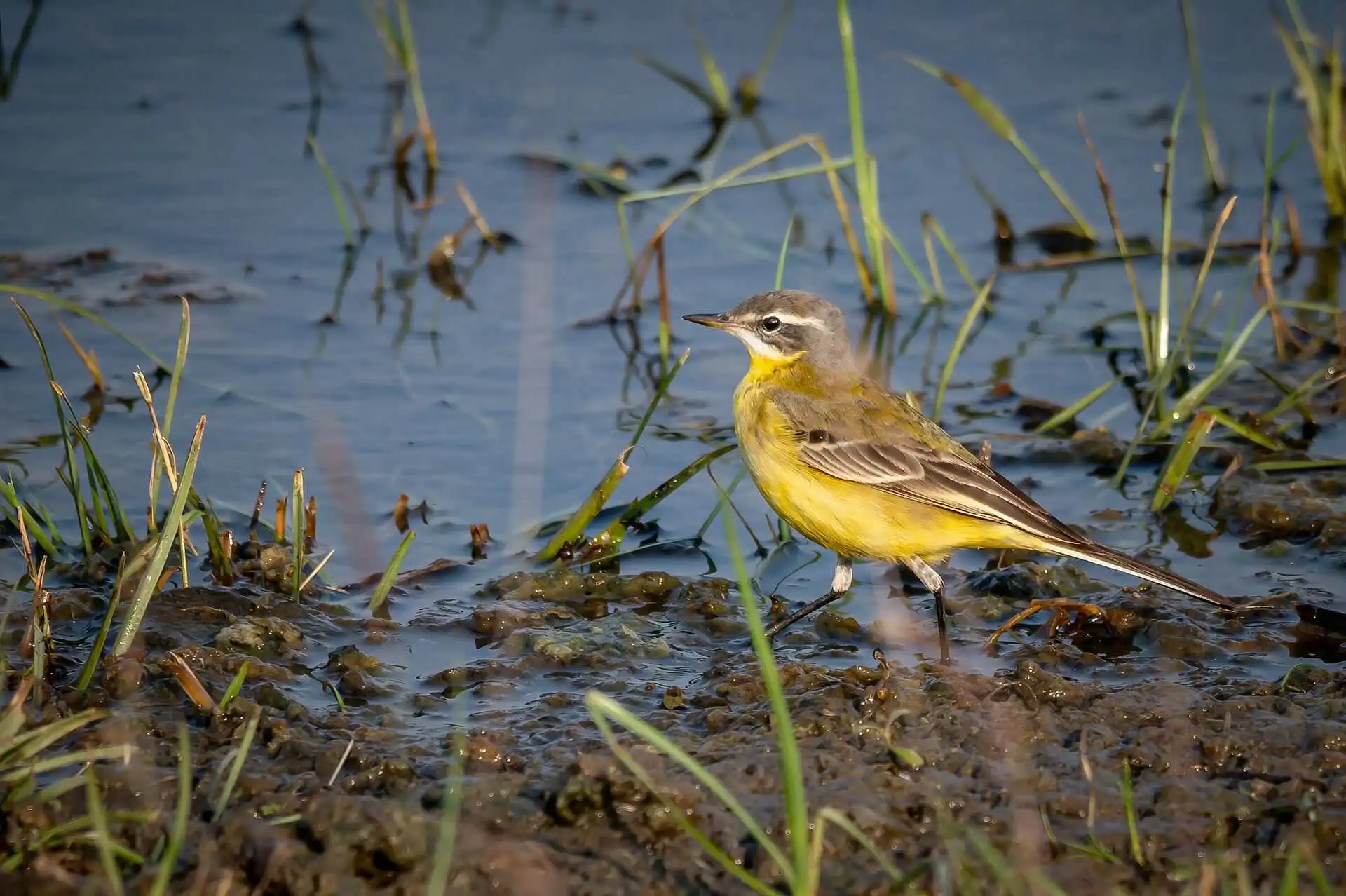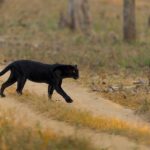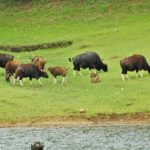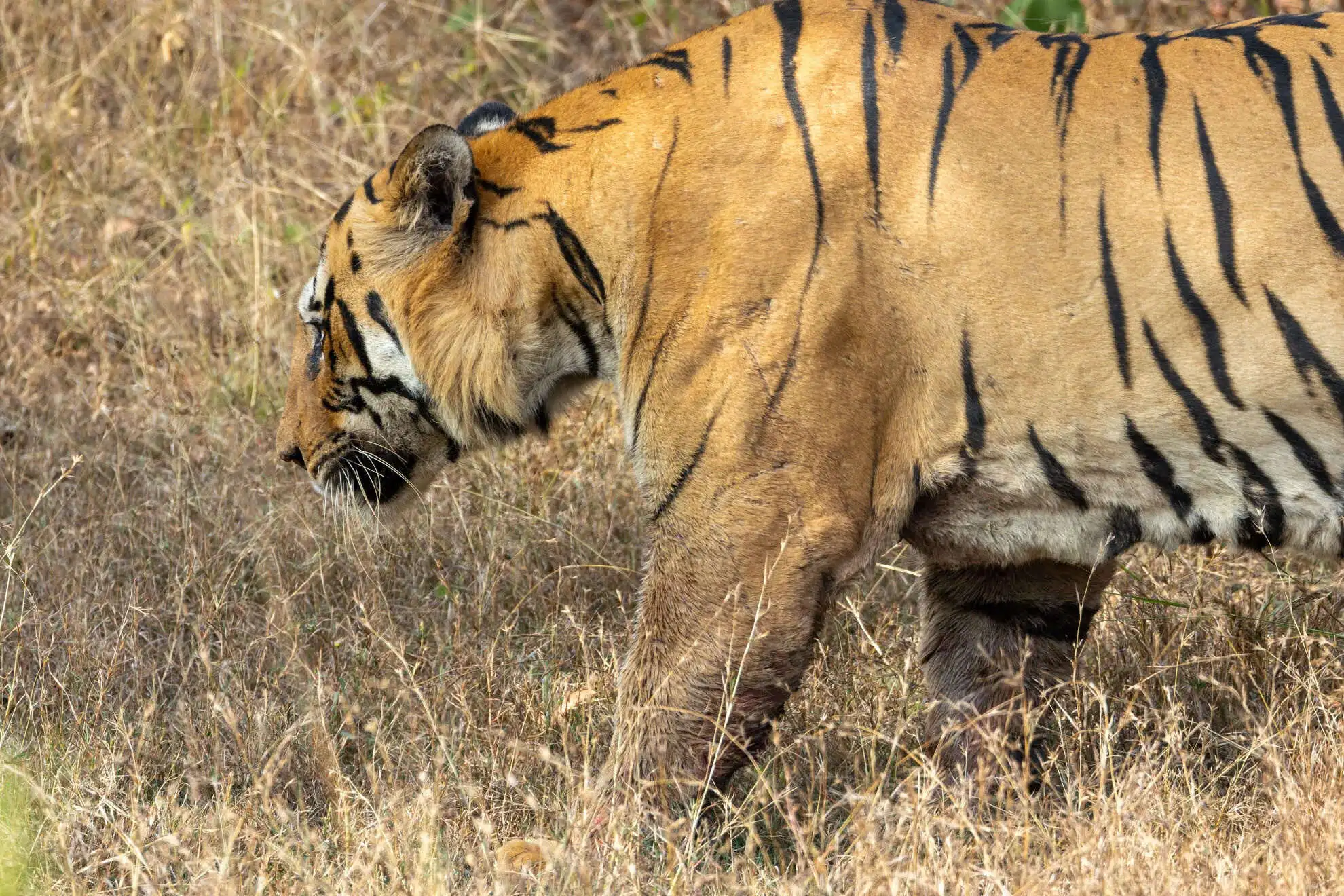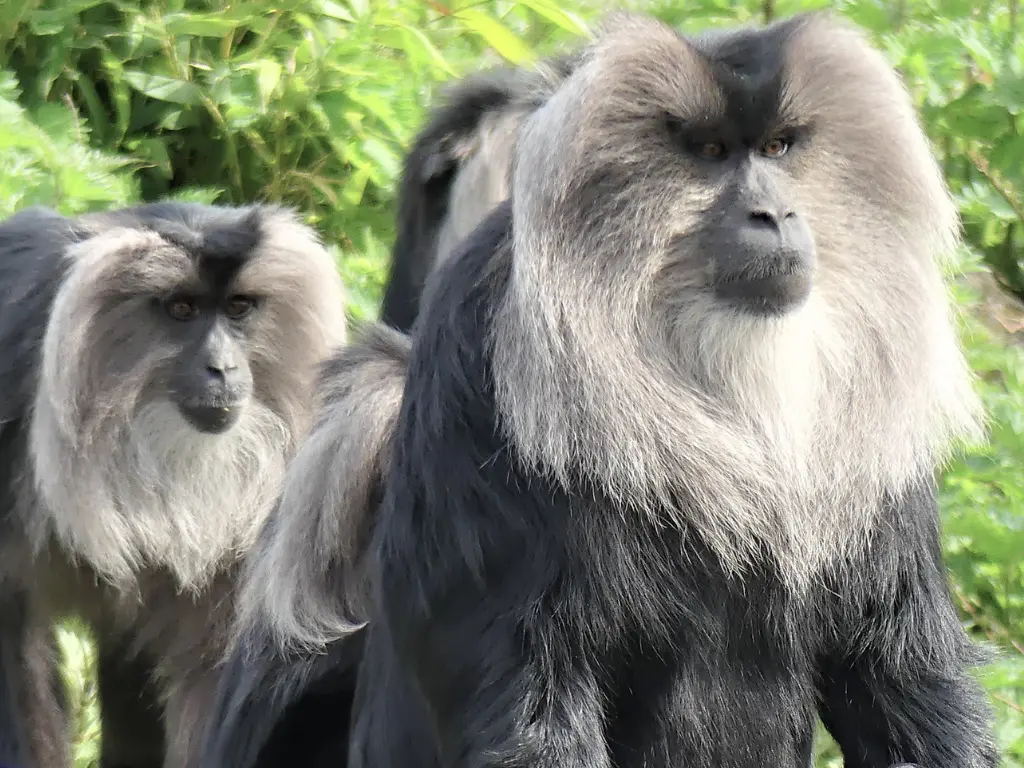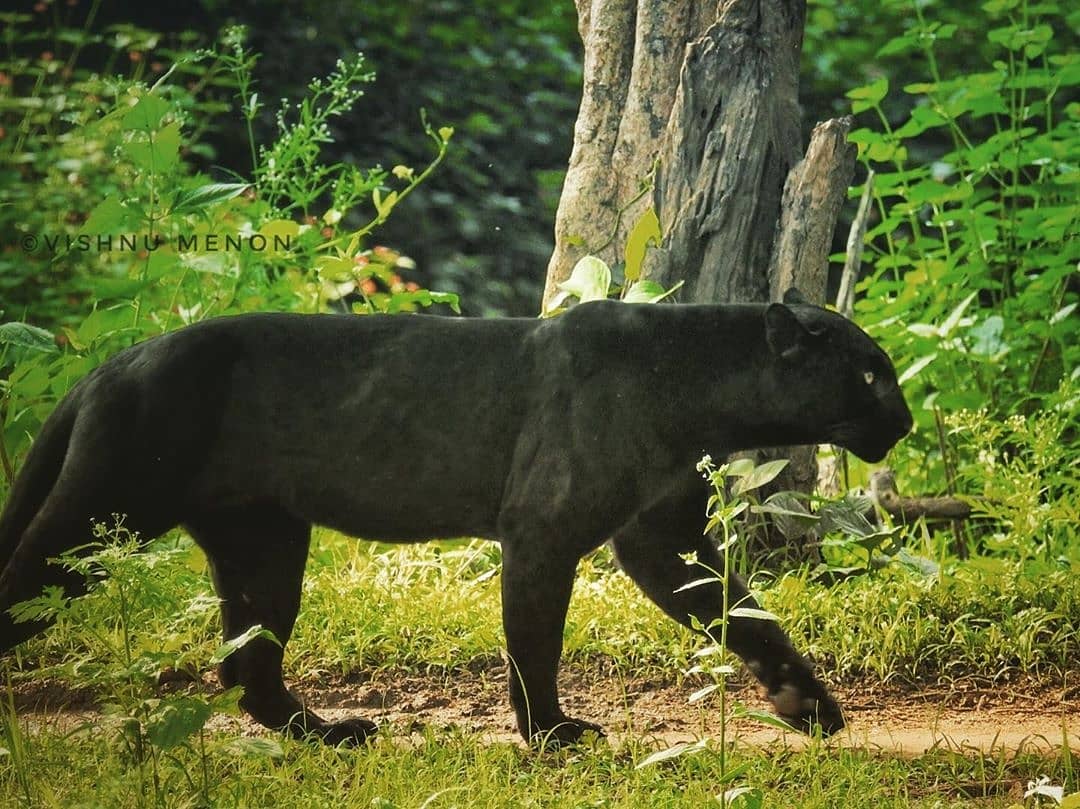The Sundarbans, with its sprawling mangrove forests and intricate waterways, is a haven for a diverse range of bird species. From majestic raptors to elusive wetland birds, this UNESCO World Heritage Site is a paradise for birdwatchers. Here are some of the fascinating birds found in the Sundarbans.
Sundarbans Woodpecker
Scientific Name: Chrysocolaptes strictus
Endemic to the Sundarbans region, this woodpecker is recognized by its bright crimson head and strong bill, which it uses to peck at tree bark in search of insects.
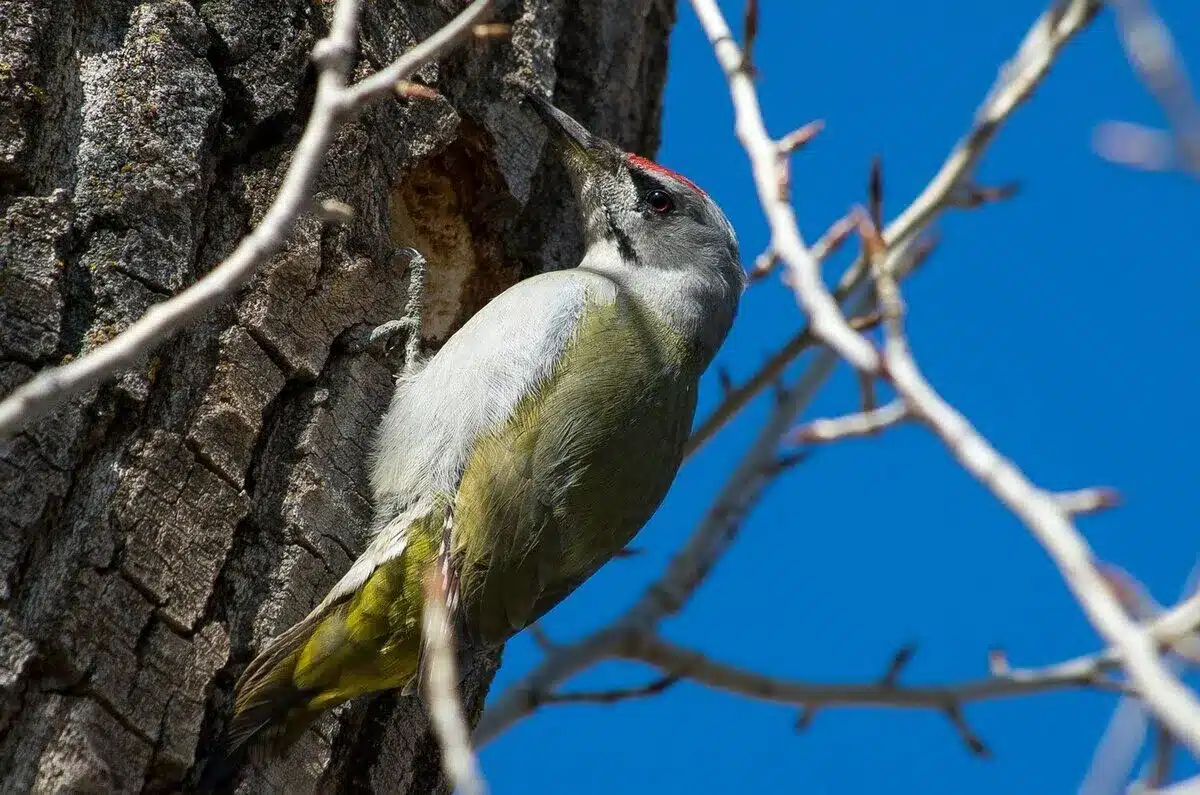
Bengal Florican
Scientific Name: Houbaropsis bengalensis
One of the rarest and most threatened birds in the world, the Bengal Florican is a ground-dwelling species known for its striking black and white plumage. It prefers grassland habitats and is often seen performing aerial displays during the breeding season.
Black-crowned Night Heron
Scientific Name: Nycticorax nycticorax
A nocturnal bird often seen perched near water bodies, the Black-crowned Night Heron is known for its hunched posture and striking red eyes. It hunts fish, amphibians, and small aquatic creatures under the cover of darkness.
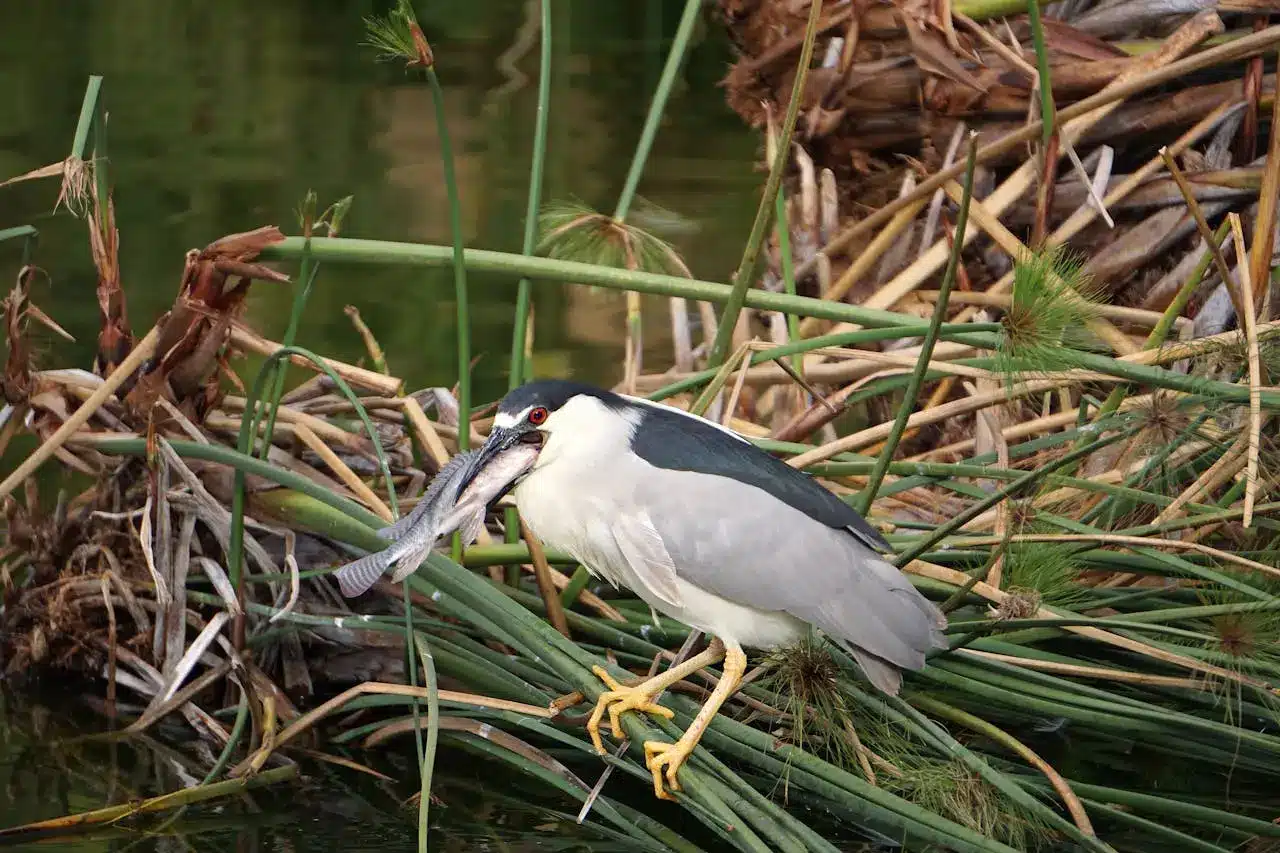
White-bellied Sea Eagle
Scientific Name: Haliaeetus leucoryphus
A powerful raptor, this eagle soars above the waterways of the Sundarbans, searching for fish and small mammals. Its impressive wingspan and sharp talons make it one of the most formidable predators in the region.
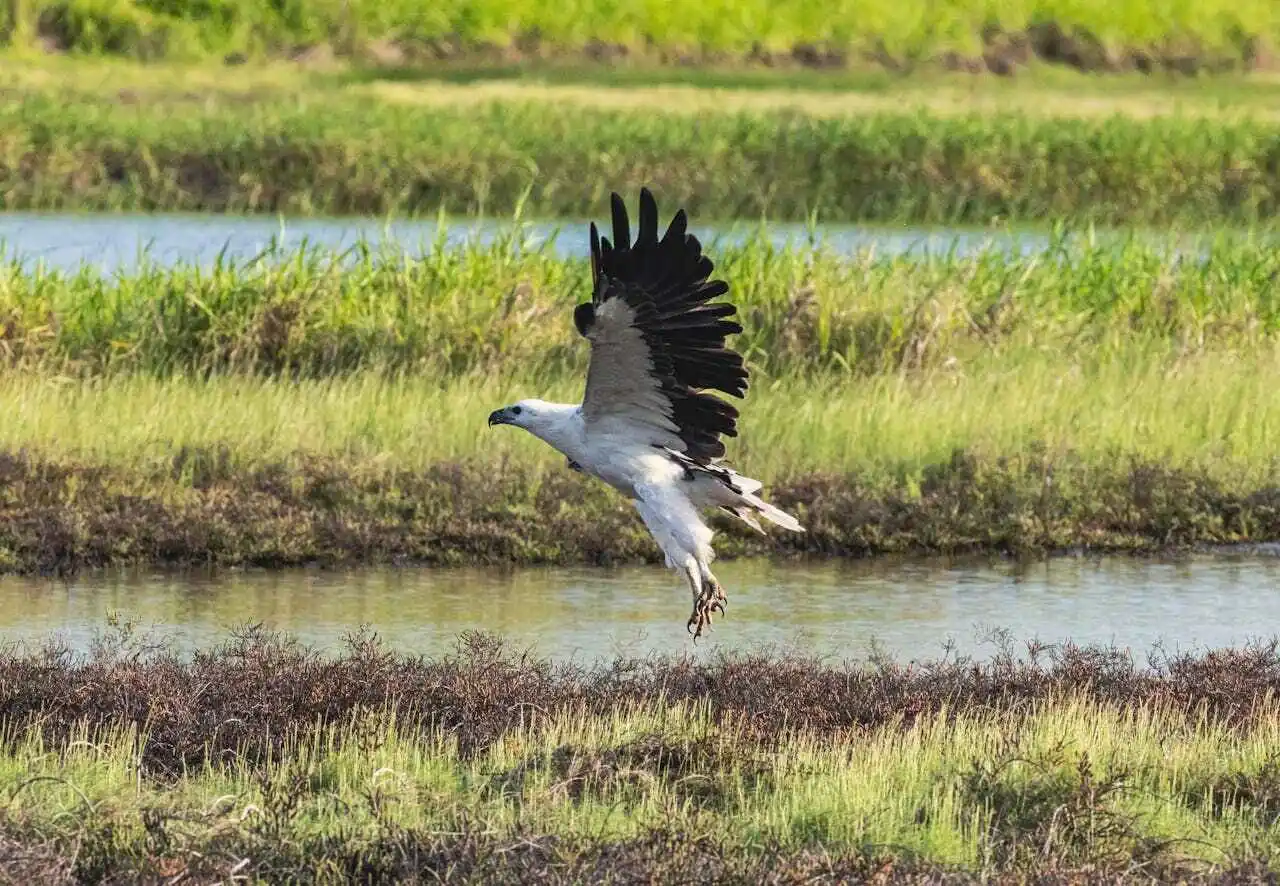
Brown-winged Kingfisher
Scientific Name: Pelargopsis amauroptera
A striking bird with rich brown wings and a vibrant orange beak, the Brown-winged Kingfisher is a rare sight in the Sundarbans. It prefers dense mangrove forests and is known for its loud, echoing calls.
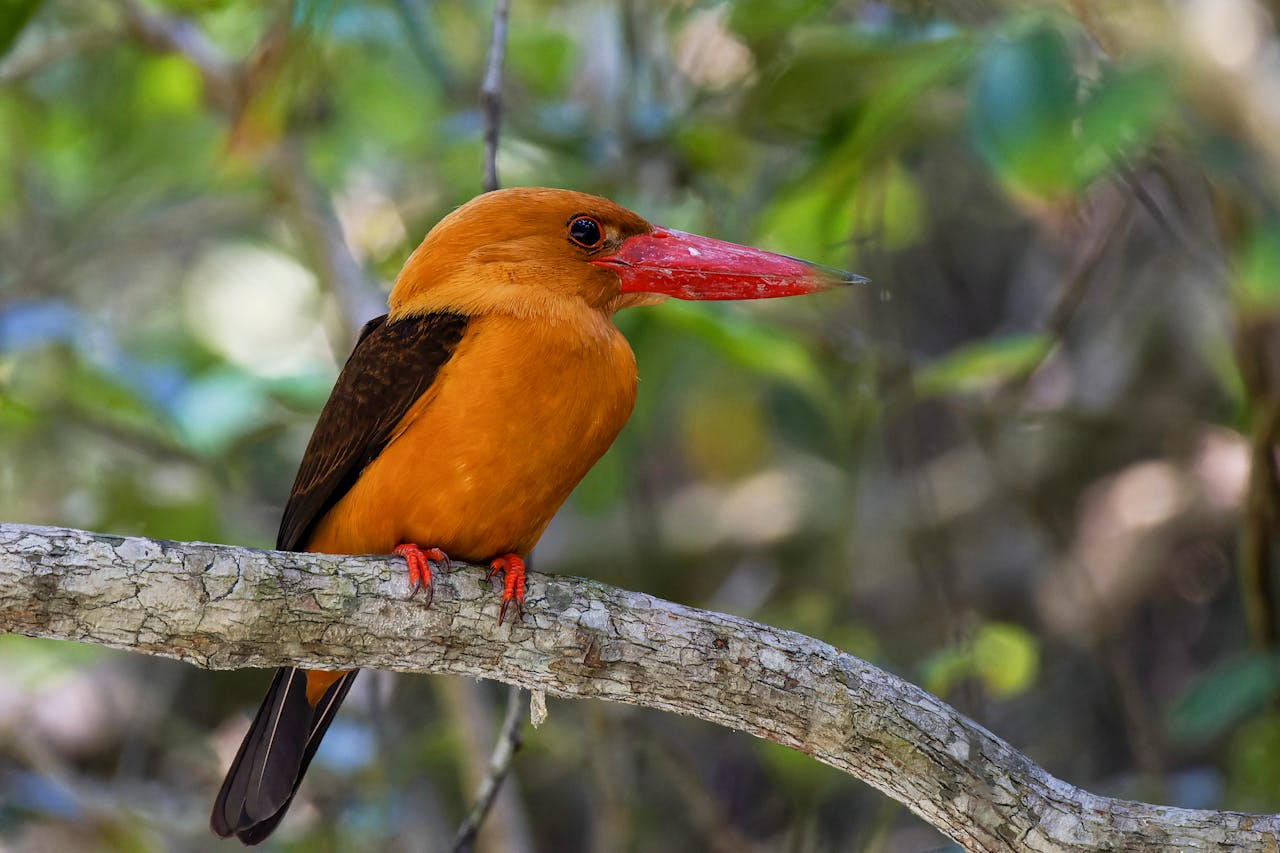
Mangrove Whistler
Scientific Name: Pachycephala cinerea
A small, elusive bird with a melodic song, the Mangrove Whistler is perfectly adapted to the dense vegetation of the Sundarbans. It is often heard before it is seen, blending seamlessly with its surroundings.
Lesser Adjutant Stork
Scientific Name: Leptoptilos javanicus
This large wading bird, with its bald head and imposing stature, is commonly found in wetlands and mudflats. It feeds on fish, amphibians, and carrion, playing a vital role in the ecosystem.
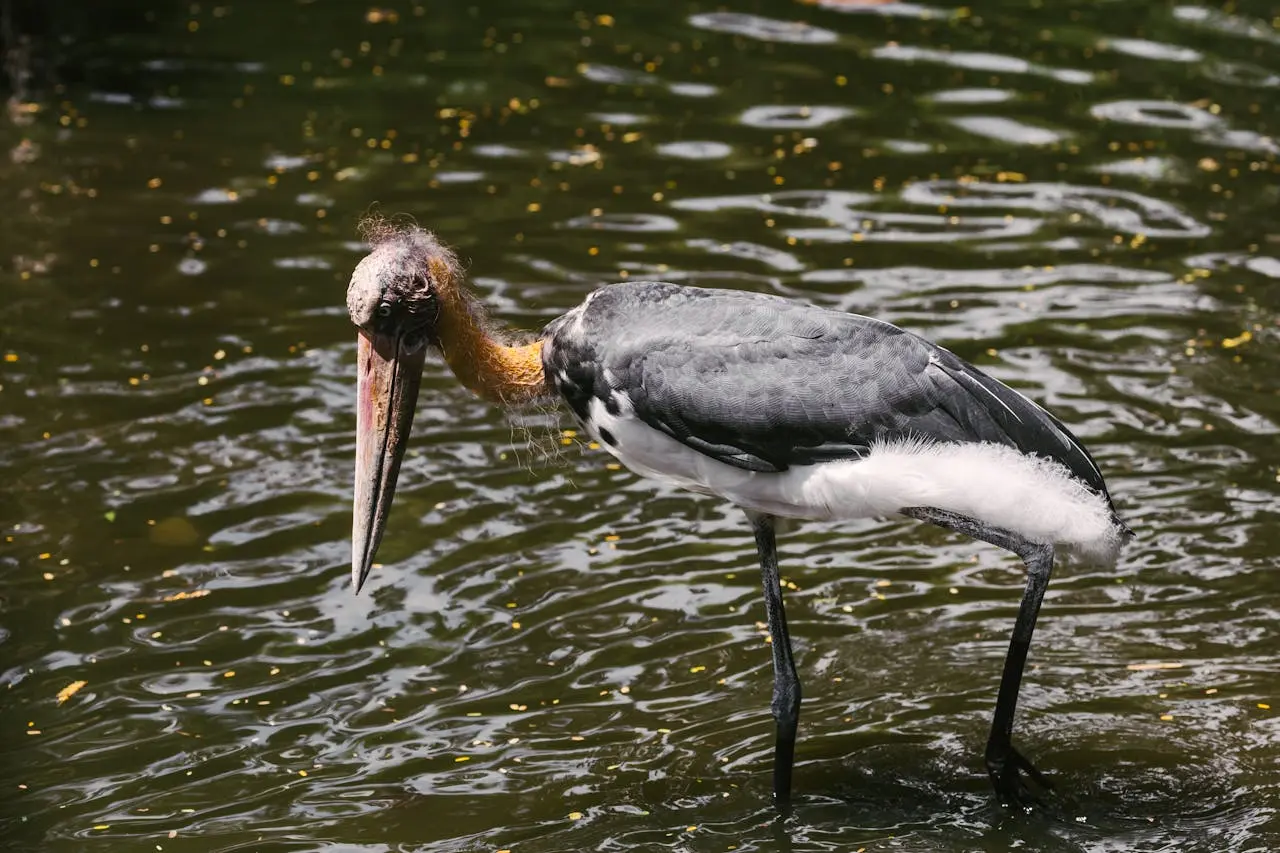
Grey-headed Fishing Eagle
Scientific Name: Ichthyophaga ichthyaetus
A skilled hunter, this eagle is often seen perched on branches overlooking water bodies. With keen eyesight and sharp talons, it swoops down to catch fish with incredible precision.
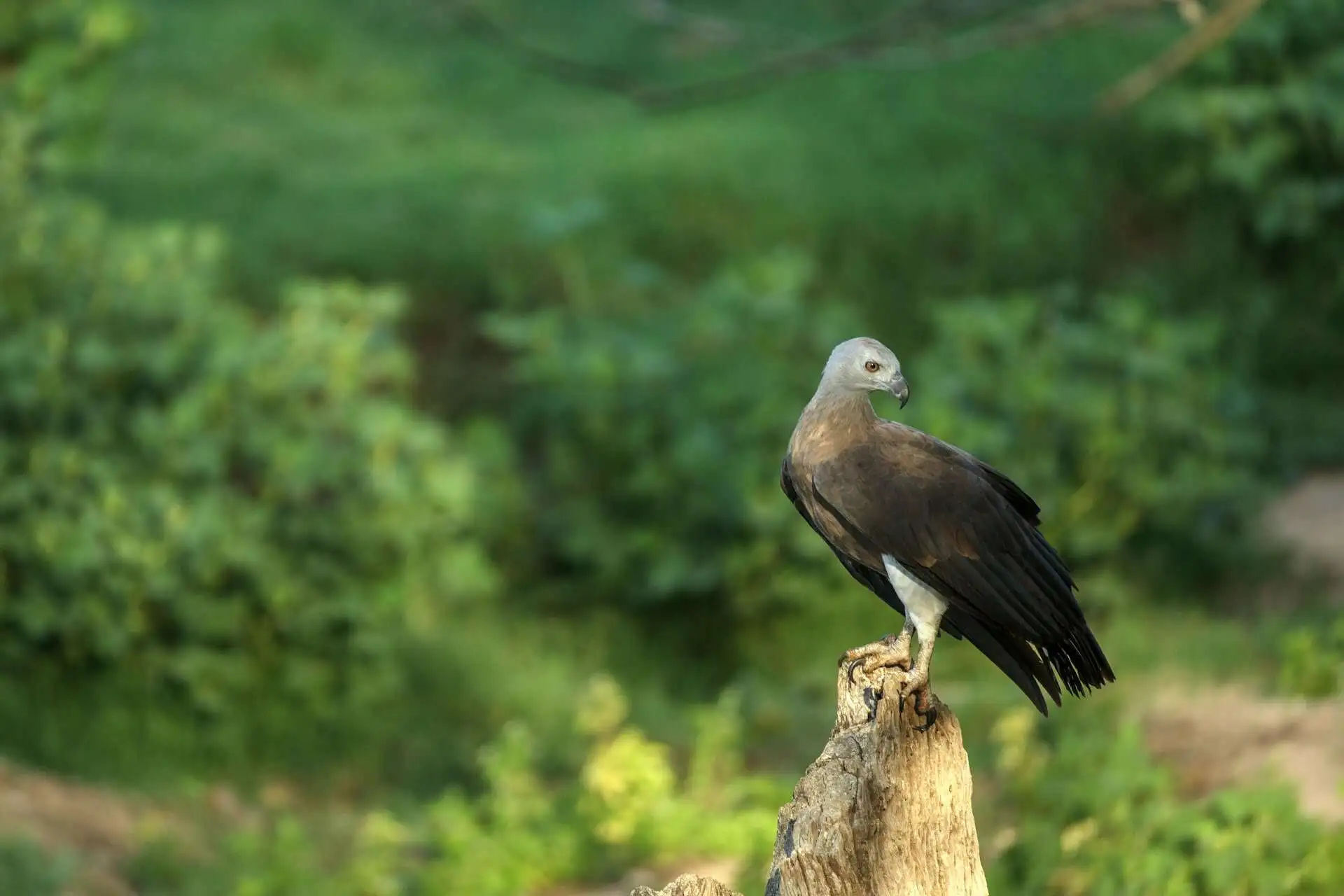
Purple Heron
Scientific Name: Ardea purpurea
A slender, elegant heron with a distinctive reddish-purple hue, this bird thrives in the marshy waters of the Sundarbans. It is known for its slow, calculated movements while hunting.
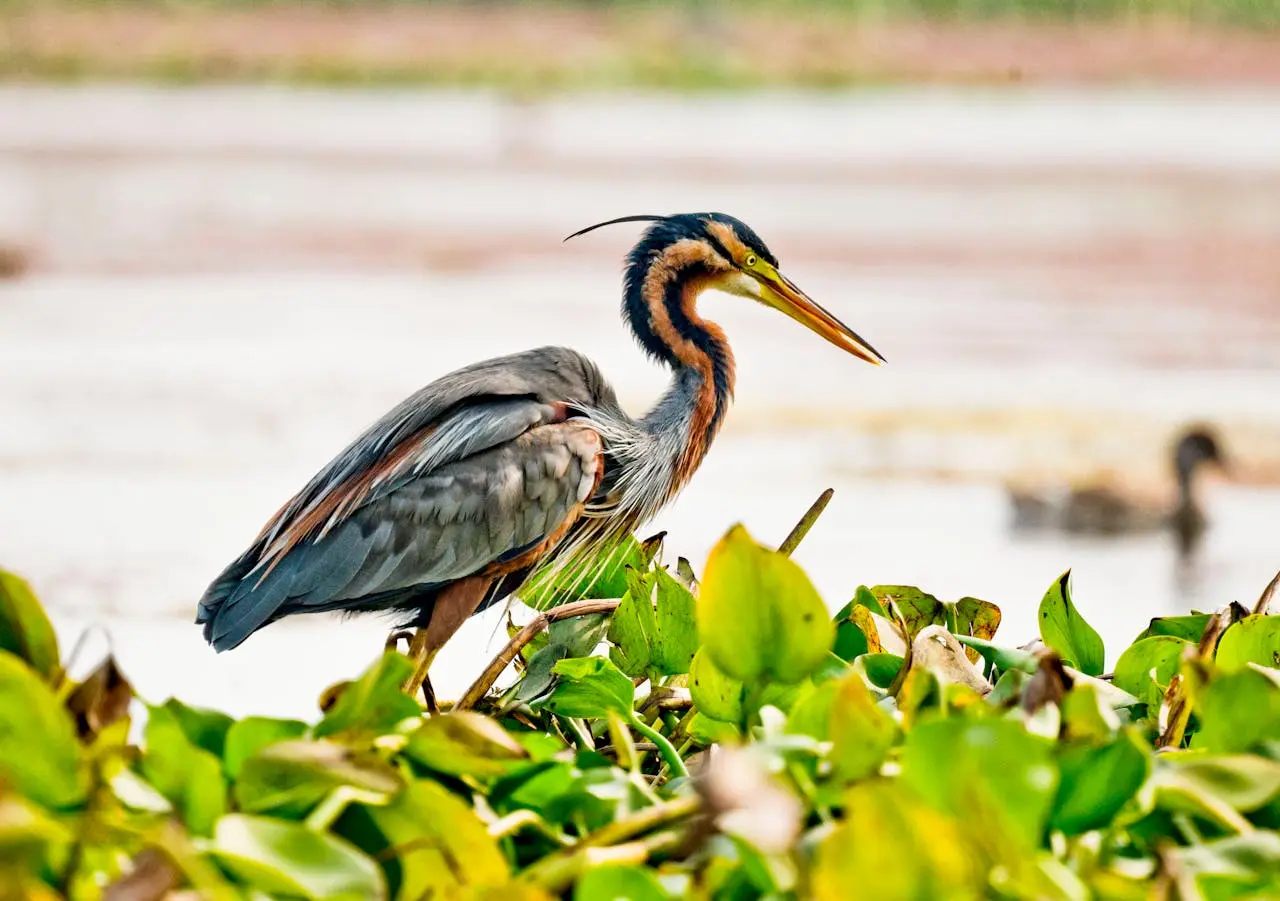
Asian Openbill Stork
Scientific Name: Anastomus oscitans
Named for the characteristic gap between its upper and lower bill, the Asian Openbill Stork feeds primarily on snails and other aquatic prey. It is commonly seen foraging in shallow waters.
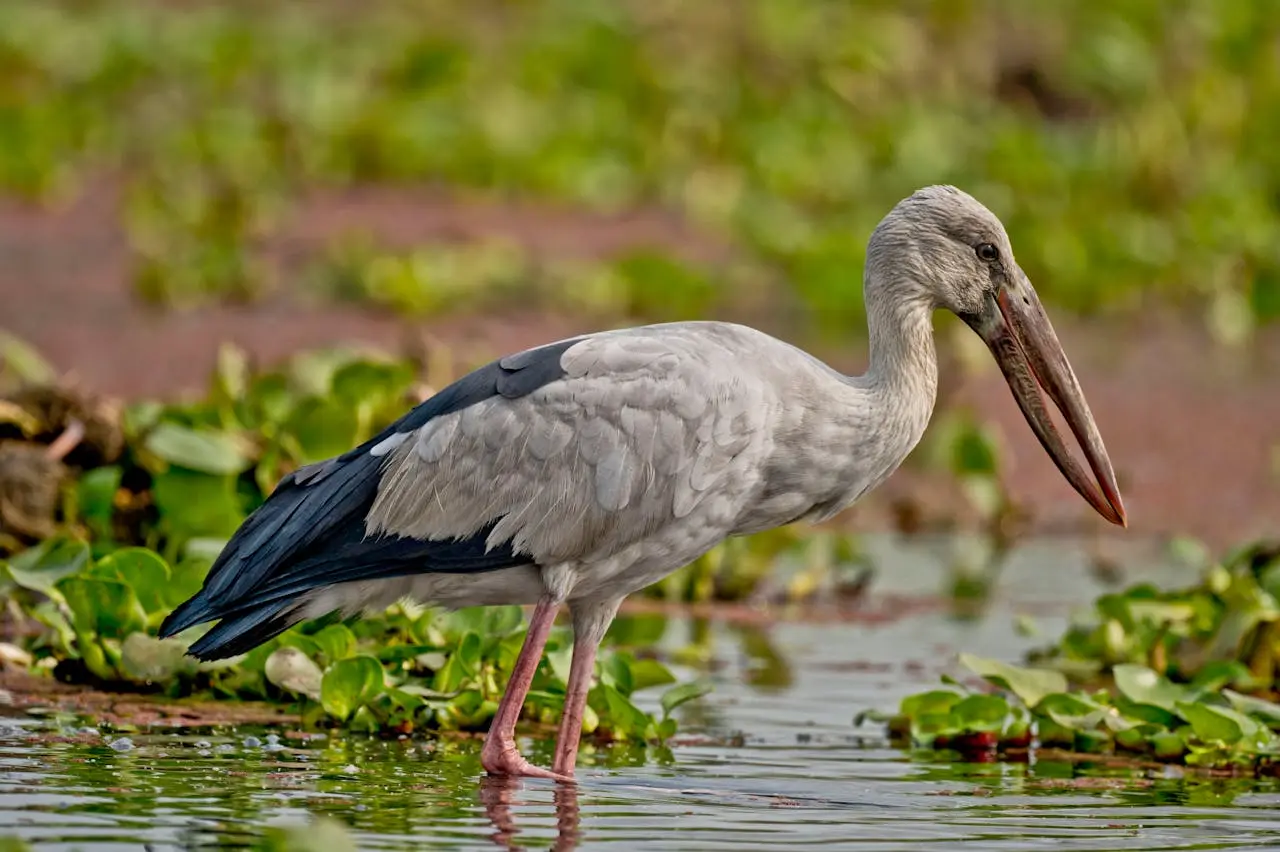
Other Birds to Spot in Sundarban
Commonly Found Birds in Sundarban
- Black Drongo
- Common Sandpiper
- Rufous Treepie
- Greater Coucal
- Little Cormorant
- Indian Pond Heron
- Red-vented Bulbul
- Green Bee-eater
- House Crow
- Asian Koel
- Baya Weaver
- House Sparrow
- Purple Sunbird
- Pale-billed Flowerpecker
Rarely Found Birds in Sundarban
- Masked Finfoot
- Buffy Fish Owl
- Pied Harrier
- Pallas’s Fish Eagle
- Nordmann’s Greenshank
Migrant Birds in Sundarban
- Ruddy Shelduck
- Northern Pintail
- Eurasian Wigeon
- Black-tailed Godwit
- Curlew Sandpiper
How to Plan Birding in Sundarbans
Planning a birding trip to the Sundarbans is a bit different from forest safaris, but it’s just as exciting. The best time to visit is from November to March, when the weather is pleasant and bird activity is high. Focus on the creek and mangrove zones, as that’s where species like the Mangrove Whistler, Black-capped Kingfisher, and Brown-winged Kingfisher are commonly spotted.
Since most birding is done by boat, booking a reliable boat safari with experienced guides is key. Early mornings and late afternoons are the most rewarding times. Also, carry a field guide, good binoculars, and protective gear for humidity and occasional splashes.
If you book your Sundarbans birding trip with us, we’ll take care of everything—boats, permits, local guides, and comfortable stays—so all you need to do is sit back, listen to the calls, and enjoy the experience.

